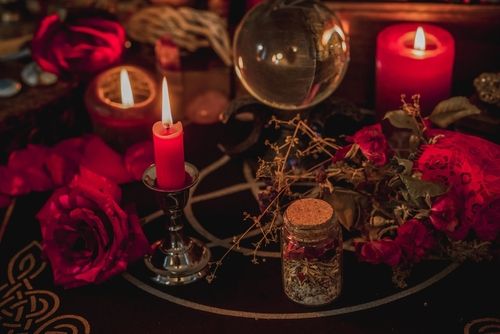 Wicca is a modern pagan religion that has captivated the interest of many. As this religion becomes more visible in mainstream culture, questions arise about what exactly Wicca entails and what its followers believe. Here’s a straightforward look at some frequently asked questions about the Wiccan religion to help demystify this often misunderstood faith.
Wicca is a modern pagan religion that has captivated the interest of many. As this religion becomes more visible in mainstream culture, questions arise about what exactly Wicca entails and what its followers believe. Here’s a straightforward look at some frequently asked questions about the Wiccan religion to help demystify this often misunderstood faith.
What is Wicca?
Wicca is a modern, nature-based pagan religion. It was introduced to the public in the 1950s by Gerald Gardner, a retired British civil servant and amateur anthropologist. He claimed that the religion was a continuation of the pre-Christian traditions of Europe. Wicca honors the Earth and elements of nature through ritual, magic, and reverence for both a god and a goddess.
Who are the Wiccan deities?
Wiccans worship a duotheistic system. These deities are sometimes viewed in many forms, such as the Triple Goddess, who represents the maiden, mother, and crone stages of life, and the Horned God, who represents the spirit of wilderness and animal realms. However, interpretations and names of these deities can vary widely among practitioners and traditions.
What do Wiccans believe?
Wicca is a highly diverse religion with many traditions that each have their own beliefs and practices. Generally, Wiccans believe in the power of magic and the practice of witchcraft. Central to Wiccan belief is the ethical guideline known as the "Wiccan Rede" that states, "An it harm none, do what ye will." This underlines the freedom to act, as long as it doesn't harm anyone. Additionally, Wiccans believe in the "Threefold Law," which suggests that whatever energy a person puts out into the world, be it positive or negative, will be returned to that person three times.
How do Wiccans practice their religion?
Wicca is a very ritualistic religion that involves ceremonies, which often coincide with phases of the moon and seasonal changes, which are known as "sabbats" and "esbats." Common rituals include casting a circle to create sacred space, invoking the God and Goddess, performing magic, seasonal rituals, and celebrating life transitions such as births, marriages, and deaths.
Is Wicca the same as witchcraft?
While Wicca incorporates witchcraft as a part of its practices, not all individuals who practice witchcraft identify as Wiccan. Witchcraft, or Wicca, involves the use of magic and is just one aspect of the Wiccan religion. Meanwhile, witchcraft can be practiced by anyone, regardless of their religious affiliations, and spans various cultures and traditions.
What are some common misconceptions about Wicca?
One of the biggest misconceptions about Wicca is that it is evil or satanic. Wiccans do not believe in Satan, as that concept is specific to Christianity and some other monotheistic religions. Wicca is a peaceful, earth-honoring faith. Another common misconception is that Wiccans only practice curses and hexes, which is not true, as the core belief revolves around harming none. Also, people often confuse Wiccans and Pagans, but while Wicca falls under the broad umbrella of paganism, not all pagans are Wiccans.
Can anyone become a Wiccan?
Anyone interested in following the path of nature, gods, and magic can become a Wiccan. There are many books and resources available for beginners. Some choose to join covens, which are groups of Wiccans who gather to perform rituals and share knowledge, while others may practice alone as solitary witches.
Wicca is a complex religion with deep, rich roots and an emphasis on personal freedom, responsibility, and respect for nature. As with any religion, understanding Wicca takes an open mind and a willingness to learn about its practices and beliefs. Whether participating in group rituals or practicing solo, Wiccans find a spiritual path that is both mystical and empowering.



